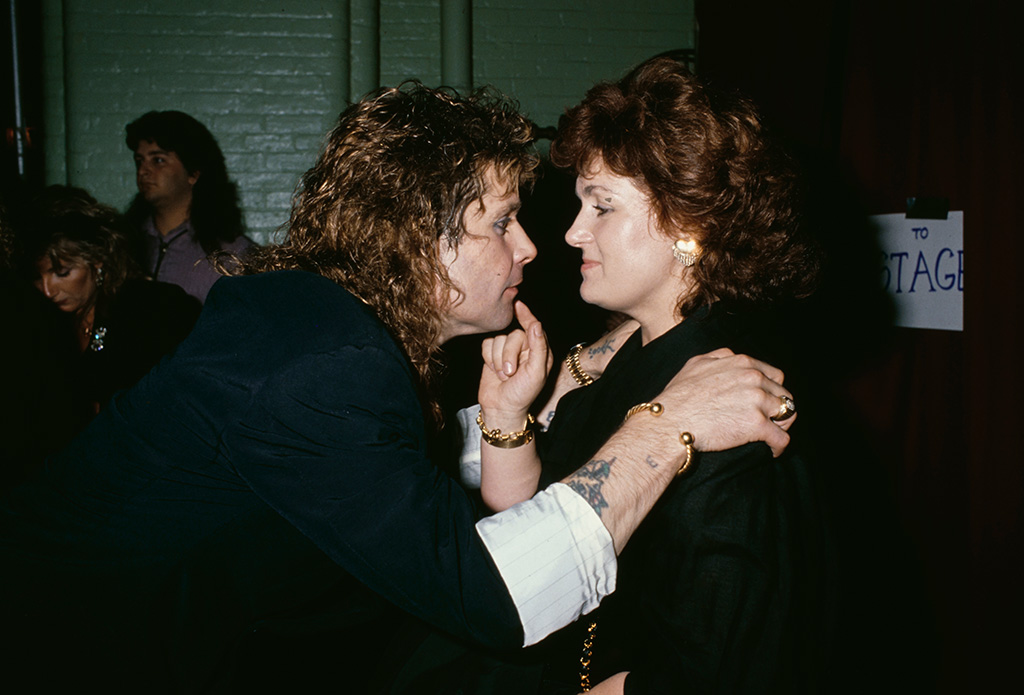Breaking News: Rock Legend Ozzy Osbourne Dies at 76 — Controversy Erupts Over Wife Sharon’s Alleged Cruelty
The world of rock and roll is mourning the loss of one of its most iconic figures. Ozzy Osbourne, the legendary frontman of Black Sabbath and a solo artist who defined heavy metal for generations, has passed away at the age of 76. The news comes after years of public health struggles, emotional battles, and a tumultuous marriage that ended in divorce. But his death is not only being met with grief — it’s also igniting a wave of controversy and accusations surrounding the role of his ex-wife, Sharon Osbourne, in his final years.
A Legacy in Music and Mayhem
Born in Birmingham, England in 1948, John Michael “Ozzy” Osbourne rose to fame in the early 1970s as the lead singer of Black Sabbath. With his dark, haunting voice and on-stage antics, he became one of the founding fathers of heavy metal. His solo career only cemented his legacy, with albums like Blizzard of Ozz and Diary of a Madman going multi-platinum.
But Ozzy was never just about music. His lifestyle — riddled with drug use, alcoholism, and chaotic personal decisions — became part of his legend. He was a man both revered and feared, idolized for his musical genius but scrutinized for his personal demons.
Health Struggles and Public Battles
In recent years, Ozzy’s health had taken a dramatic turn. He suffered from Parkinson’s disease, endured multiple surgeries, and openly admitted in interviews that he was “struggling to stay alive.” Fans rallied around him, praising his resilience and applauding his candor about addiction, pain, and vulnerability.

But behind the scenes, the drama intensified. His long-time wife and manager, Sharon Osbourne, with whom he shared decades of marriage and three children, filed for divorce — not quietly, but amid allegations of serial infidelity and sex addiction.

Sharon Osbourne: Devoted Partner or Cold Betrayer?
For many years, Sharon was seen as Ozzy’s rock — the woman who kept him alive, managed his career, and stood by him through relapse after relapse. But insiders say that relationship was far more complex.
According to close sources and leaked documents, Sharon’s decision to leave wasn’t just about betrayal. It was also reportedly driven by emotional exhaustion, accusations of abuse, and deep psychological trauma.
Now, in the aftermath of Ozzy’s death, disturbing claims have begun to surface. Several unnamed insiders allege that Sharon’s treatment of Ozzy in his final months was “cruel and isolating.” Some even go so far as to suggest that she intentionally distanced him from family members, limited his access to outside support, and focused more on managing his estate than caring for his well-being.
The Public Reacts: Sympathy or Suspicion?
Social media erupted within hours of the announcement, with fans around the globe expressing sorrow, disbelief, and outrage. While many poured in condolences and paid tribute to Ozzy’s legacy, others questioned the nature of his final days.
“I loved Ozzy, but I feel like we never got the full truth about what was happening to him,” one fan wrote. Another tweeted, “We need to talk about Sharon Osbourne. There’s more to this story.”
Conspiracy theories have even begun circulating, with hashtags like #JusticeForOzzy and #SharonKnew gaining traction. Although there is no official investigation, the public pressure may soon push for answers about how Ozzy spent his final moments, and whether emotional neglect — or worse — played a role.
A Tragic End to a Chaotic Life
Whether a victim of circumstance, a self-destructive genius, or a man failed by those closest to him, Ozzy Osbourne’s story ends not in quiet dignity, but in a storm of speculation and sorrow.
For now, fans continue to celebrate his life through his music — blaring Crazy Train, lighting candles, and revisiting his iconic MTV reality show that introduced a whole new generation to the so-called “Prince of Darkness.”
As investigations continue and family members begin to speak out, one thing remains clear: Ozzy’s death is not just the end of a life — it may be the beginning of a reckoning.





